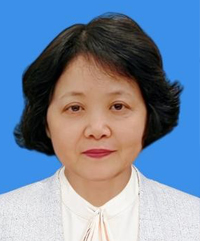Invited Speakers of 2026
TBA
Invited Speakers of 2025
 |
 |
 |
 |
|||||
Prof. Girija Chetty |
Assoc. Prof. Soma Datta |
Prof. Chen Li |
Researcher Steven S. Gouveia |
|||||
University of Canberra, Australia |
Associate Editor, Springer Nature |
Anhui Jianzhu University, China |
University of Porto, Brazil |
|||||
Speech Title: Multimodal Embodied Agents: The Next Frontier of Artificial Intelligence |
Speech Title: Modeling Freshmen Enrollment Before Orientation Using Guided Decision Trees and Cumulative Probability Scoring |
Speech Title: Research on the Evaluation of Smart Library Construction Based on Ridge-PSOSVM |
Speech Title: Putting Health First: an Ethical Argument for Prioritizing Medical AI Over Other Technological Developments |
|||||